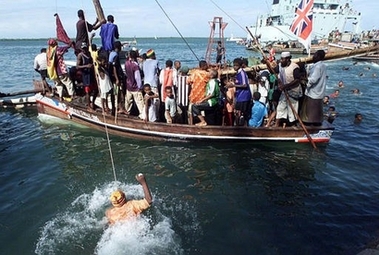Expert says oceans are turning acidic
(AP)Updated: 2006-11-10 15:48
NAIROBI, Kenya - The world's oceans are becoming more acidic, which poses a threat to sea life and Earth's fragile food chain, a climate expert said Thursday.
"The oceans are rapidly changing," said professor Stefan Rahmstorf on the sidelines of a UN conference on climate change that has drawn delegates from more than 100 countries to Kenya. "Ocean acidification is a major threat to marine organisms."
Fish stocks and the world's coral reefs could also be hit while acidification risks "fundamentally altering" the food chain, he said.
In a study titled "The Future Oceans - Warming Up, Rising High, Turning Sour," Rahmstorf and eight other scientists warned that the world is witnessing, on a global scale, problems similar to the acid rain phenomenon of the 1970s and 1980s.
Rahmstorf, the head of Germany's Potsdam Institute for Research into Climatic Effects, says more research is urgently needed to assess the impact of ocean acidification.
David Santillo, a senior scientist at Greenpeace's Research Laboratories in Exeter, Britain, said it had come as a shock to scientists that the oceans are turning acidic because of carbon dioxide emissions.
"The knock on effect for humans is that some of these marine resources that we rely on may not be available in the future," the marine biologist, who was not involved in Rahmstorf's study, told The Associated Press by telephone.
Rahmstorf also reiterated warnings of rising sea levels caused by global warming, saying that in 70 years, temperature increases will lead more frequent storms with 200 million people threatened by floods.
Scientists blame the past century's one-degree rise in average global temperatures at least in part for the accumulation of carbon dioxide, methane and other heat-trapping greenhouse gases in the atmosphere - byproducts of power plants, automobiles and other fossil fuel burners.
The 1997 Kyoto accord requires 35 industrialized countries to reduce greenhouse-gas emissions by 5 per cent below 1990 levels by 2012. The Kyoto countries meeting in Nairobi are continuing talks on what kind of emissions targets and timetables should follow 2012.
|
||
|
||
|
|

